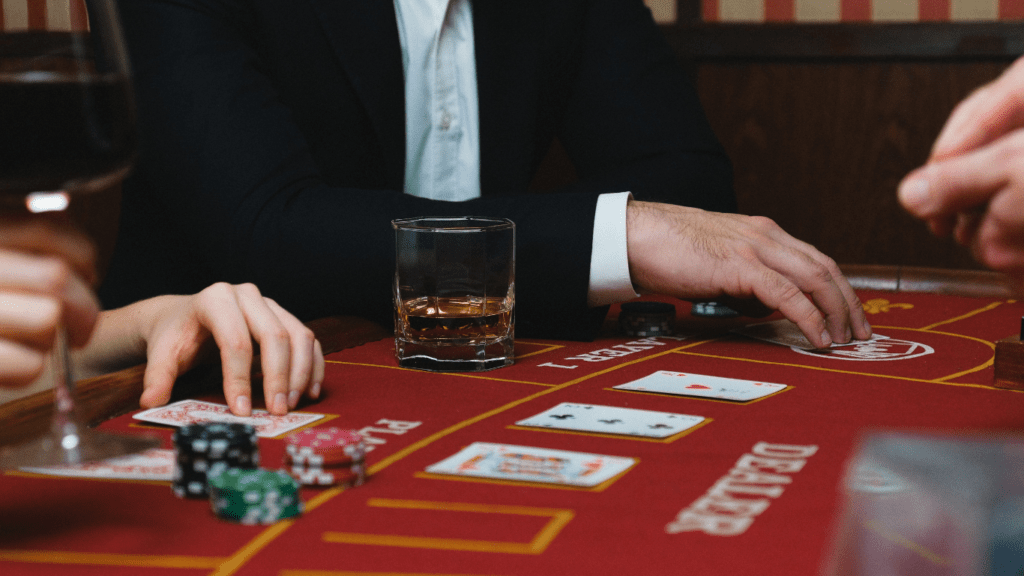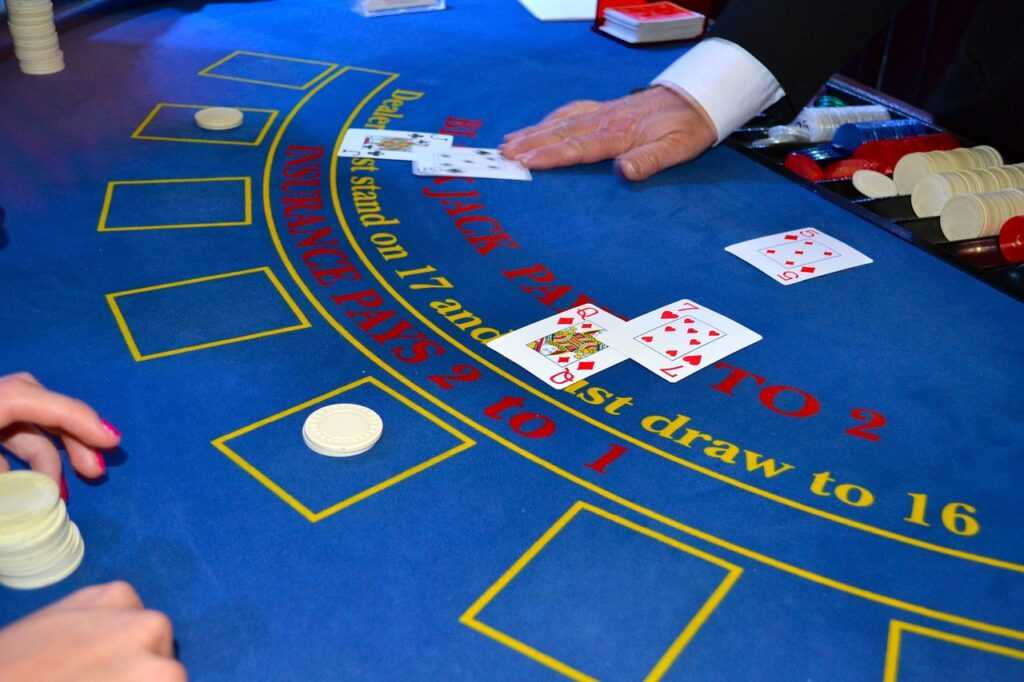Understanding the Importance of Reading Opponents
In card games, reading opponents offers an essential edge. Recognizing patterns in opponents’ behavior helps me anticipate their moves. Emotional stability becomes crucial when interpreting these cues. Players often reveal significant information through non-verbal gestures like:
- facial expressions
- hesitations
- body posture
For instance, an opponent’s prolonged gaze at their cards might suggest uncertainty. Paying attention to such subtle indicators allows me to predict strategies and act decisively.
Apart from physical tells, players’ betting patterns reveal their confidence levels. A sudden increase in bets can signify strong hands, while cautious behavior might indicate doubt. Analyzing these patterns lets me adjust my strategy in real-time to counteract their tactics. Understanding both verbal and non-verbal signals bridges the gap between successful play and relying purely on luck. This approach, rooted in psychological analysis, enhances my ability to outmaneuver opponents consistently.
Psychological Techniques for Observing Behavior
Understanding an opponent’s behavior in card games can provide a strategic advantage. Recognizing key psychological cues offers insights into their potential moves, making it vital to observe facial expressions, body language, and verbal cues.
Recognizing Facial Expressions
Facial expressions reveal a wealth of information about an opponent’s current state. Watching for subtle changes in brow movement, eye dilation, or lip tension can indicate stress, confidence, or bluffing. A player who suddenly smiles may have drawn a favorable card or achieved a hidden strategy.
Analyzing Body Language
Body language often tells more than words. Observing the positioning of an opponent’s arms, legs, or torso can indicate comfort or discomfort with the hand being played. A player leaning forward might feel confident, while crossed arms could suggest defensiveness or uncertainty. Hands’ movements—like fidgeting or tapping—often reflect nervousness or anticipation.
Eavesdropping on Verbal Cues
- Verbal cues complement physical observations, offering additional layers of insight.
- The tone, pitch, and pace of an opponent’s speech can suggest their comfort level.
- Changes in volume or speech patterns may betray attempts to mislead or conceal intentions.
- Comments made about the game state, whether directly or offhandedly, often reveal crucial information about their hand or strategy.
- These psychological techniques, when used adeptly, help create a clearer picture of opponents’ intentions and potential tactics, enhancing one’s ability to respond adroitly in a card game.
Strategies for Interpreting Patterns

Recognizing patterns in opponents’ behavior provides a significant advantage in card games. By focusing on consistent habits, players can better anticipate opponents’ moves.
Identifying Betting Habits
I observe opponents’ betting sequences to discern their strategies. Consistent betting amounts may signal confidence, while erratic behavior might indicate uncertainty or bluffing. Tracking the timing of their bets reveals if players make strategic decisions under pressure. Recognizing these habits enables me to adjust my own tactics intelligently.
Noting Card Handling Styles
Watching how opponents handle their cards offers valuable insights. Tense or shaky hands often betray nerves, especially in critical moments. Conversely, smooth and swift movements usually suggest confidence or familiarity with their hand. I pay attention to repetitive actions, like frequent adjustments, which may signal an attempt to mask a weak hand. By interpreting these styles, I refine my approach to maximize my success in games.
Common Mistakes to Avoid
In reading opponents during card games, avoiding common mistakes sharpens your strategic edge. Recognizing these pitfalls enhances your ability to interpret behaviors accurately.
Overreliance on Tells
Focusing too heavily on tells can lead to misguided assumptions. Experienced players may use false tells to manipulate opponents. It’s important to corroborate tells with other evidence, such as betting patterns, to avoid falling into traps. For example, a player showing signs of nervousness may not always indicate a weak hand and could be a tactic to mislead others.
Misinterpreting Behaviors
Incorrectly interpreting an opponent’s behavior can undermine your strategy. Personal biases or preconceived notions may skew perception. An opponent rubbing their chin might indicate concentration rather than contemplating a bluff. Consider context and observe over time to form a complete picture. Pairing behavioral observations with game flow insights ensures a balanced understanding of opponents’ intentions.
Enhancing Your Psychological Prowess
Boosting my psychological skills in card games isn’t just about collecting tells—it’s also about refining my mental techniques.
Practicing Mindfulness
In card games, maintaining a high level of awareness and focus enables me to accurately gauge opponents’ actions and intentions. Deep breathing and centering exercises keep me present, enhancing my observational skills. By quieting my thoughts and tuning in, I pick up subtle cues, from a twitch of an eyebrow to a brief pause in conversation, which often reveal more than the cards themselves.
Building Emotional Intelligence
Understanding and managing emotions enrich both my personal journey and my strategic prowess in card games. By recognizing my emotional responses, I can prevent them from clouding my judgment, leading to clearer decision-making. Observing others’ emotional shifts, such as a sudden change in demeanor, helps me decode their psychological state. Strengthening my empathy allows me to anticipate reactions, effectively using this to strategize and adapt my gameplay.



 Community Engagement Manager
Raymundo Stricklandics serves as the Community Engagement Manager for Dice Gamblers Deal, where he is dedicated to creating meaningful connections with the platform’s audience. His role focuses on fostering an active, engaged community of players by interacting with readers, answering their questions, and ensuring their experience with the site is both enjoyable and informative. Raymundo is deeply passionate about building relationships with fellow gambling enthusiasts, whether through social media, email communications, or direct interaction on the site’s forums. He works tirelessly to ensure that the platform not only provides valuable information but also offers a supportive space where players can share their experiences, tips, and success stories. Raymundo also plays a key role in customer support, addressing user inquiries and providing personalized advice to help players navigate the world of table games and betting strategies.
Community Engagement Manager
Raymundo Stricklandics serves as the Community Engagement Manager for Dice Gamblers Deal, where he is dedicated to creating meaningful connections with the platform’s audience. His role focuses on fostering an active, engaged community of players by interacting with readers, answering their questions, and ensuring their experience with the site is both enjoyable and informative. Raymundo is deeply passionate about building relationships with fellow gambling enthusiasts, whether through social media, email communications, or direct interaction on the site’s forums. He works tirelessly to ensure that the platform not only provides valuable information but also offers a supportive space where players can share their experiences, tips, and success stories. Raymundo also plays a key role in customer support, addressing user inquiries and providing personalized advice to help players navigate the world of table games and betting strategies.
